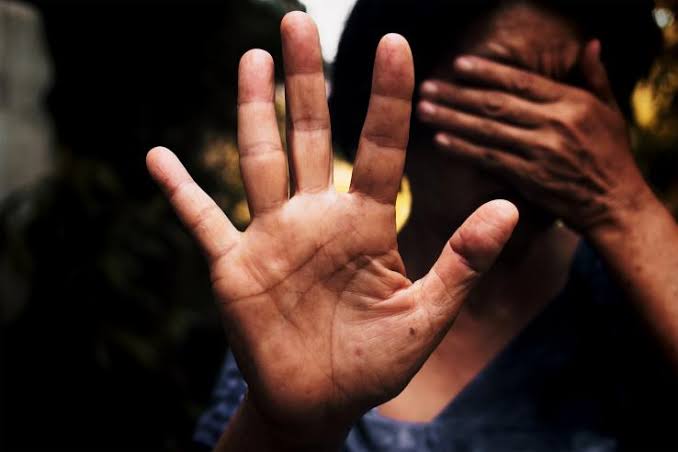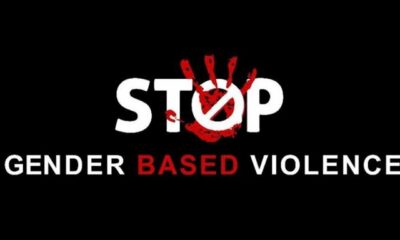News
“I’m Still Waiting”: How Delayed Justice Fails GBV Victims Like Izelle Venter

While South Africa celebrates Women’s Month, one Pretoria woman is stuck in a five-year loop of court dates and postponed justice.
“This isn’t justice. This is punishment in disguise.”
For many women in South Africa, Women’s Month is a time of reflection, empowerment, and resilience. But for Izelle Venter, it’s just another painful reminder of a justice system that hasn’t delivered.
In a story that echoes the experiences of countless gender-based violence (GBV) survivors across the country, Venter has spent the last five years navigating a criminal justice system that, instead of protecting her, has kept her in emotional limbo. Her alleged abuser, Captain Jacques Loock, a Hawks officer, continues to enjoy professional promotions while her life remains suspended.
Five Years, No Verdict
This week, Venter once again found herself in the Pretoria Magistrate’s Court, hoping for closure. But closure didn’t come. Instead, her case was postponed again, this time pending a new application to allow a state witness to testify. It’s another delay in a timeline littered with them since that February 2019 attack, which left her in intensive care for five days.
“I’ve lost count of how many times this case has been delayed,” Venter said quietly, her voice both tired and firm. “It’s not fair. I’m the victim. But in court, it feels like he has more rights than I do.”
And she’s not exaggerating. Despite the serious nature of the charges, Loock has continued climbing the ranks in law enforcement, while Venter remains trapped in a cycle of re-traumatisation, court appearances, and unanswered questions.
When the System Becomes the Second Abuser
What hurts most, Venter says, isn’t just what happened to her that night in 2019. It’s how the system keeps forcing her to relive it, again and again. “For two months I’m fine. Then court comes, and I break down. Then they postpone it, and I have to start all over again.”
She’s not alone in feeling abandoned. Advocacy group Unchain Our Children has stood by her side, publicly supporting her and condemning what they call the government’s “mockery” of zero-tolerance GBV policies. Founder Wayne van Onselen didn’t mince words: “Five years in court. A system being manipulated. And the only support is coming from NGOs. GBV is out of control.”
Still Living in Fear
What makes Venter’s situation even more harrowing is that she still fears her alleged attacker.
“Even today, when he walked into the court, I couldn’t look at him,” she said. “It’s been years, but I still can’t breathe when he’s near.”
This fear isn’t just psychological, it’s systemic. The slow, dragging pace of South African courts has allowed her trauma to remain fresh. With each postponement, she’s forced to face the very man she says shattered her world.
Justice Delayed Is Justice Denied
Criminal law expert Cornelia van Graan says Venter’s story is painfully familiar. “The courts are backed up. Cases are constantly being delayed due to procedural issues. But every time this happens, a victim suffers again.”
Van Graan pointed to South Africa’s Victims’ Charter, which promises fairness, dignity, and prompt attention to those seeking justice. In theory, it offers protection. In practice, survivors like Venter are too often left in the dark—uninformed, unsupported, and retraumatised.
“Nobody explains anything to me,” Venter says. “It’s always ‘the accused this, the accused that.’ What about me?”
Where Is the Accountability?
The irony isn’t lost on the public. On social media, outrage is brewing. The contrast between the state’s lofty Women’s Month promises and Venter’s daily reality is drawing harsh criticism. Posts on X (formerly Twitter) have called out the justice department, with hashtags like #JusticeForIzelle and #GBVInSA starting to trend in local circles.
“How is this happening in a country that claims to be cracking down on GBV?” one user wrote. Another added, “What’s the point of Women’s Month campaigns if survivors are forgotten in courtrooms?”
An Urgent Call for Reform
Izelle Venter’s story shouldn’t be just another tragic footnote in South Africa’s ongoing GBV crisis. It should be a wake-up call.
For real change, it’s not enough to arrest perpetrators. The entire justice system—from police to prosecutors to courtroom procedure, must prioritise survivors, not sideline them. That means faster case handling, proper victim communication, and accountability when justice is delayed.
Until then, survivors like Venter will continue waiting. And hurting.
Izelle Venter didn’t ask to be a symbol. But her story is now a stark reminder of what’s at stake when justice drags its feet. In a country where GBV has reached epidemic levels, delayed justice isn’t just a failure. It’s another form of violence.
{Source: The Citizen}
Follow Joburg ETC on Facebook, Twitter , TikTok and Instagram
For more News in Johannesburg, visit joburgetc.com



























